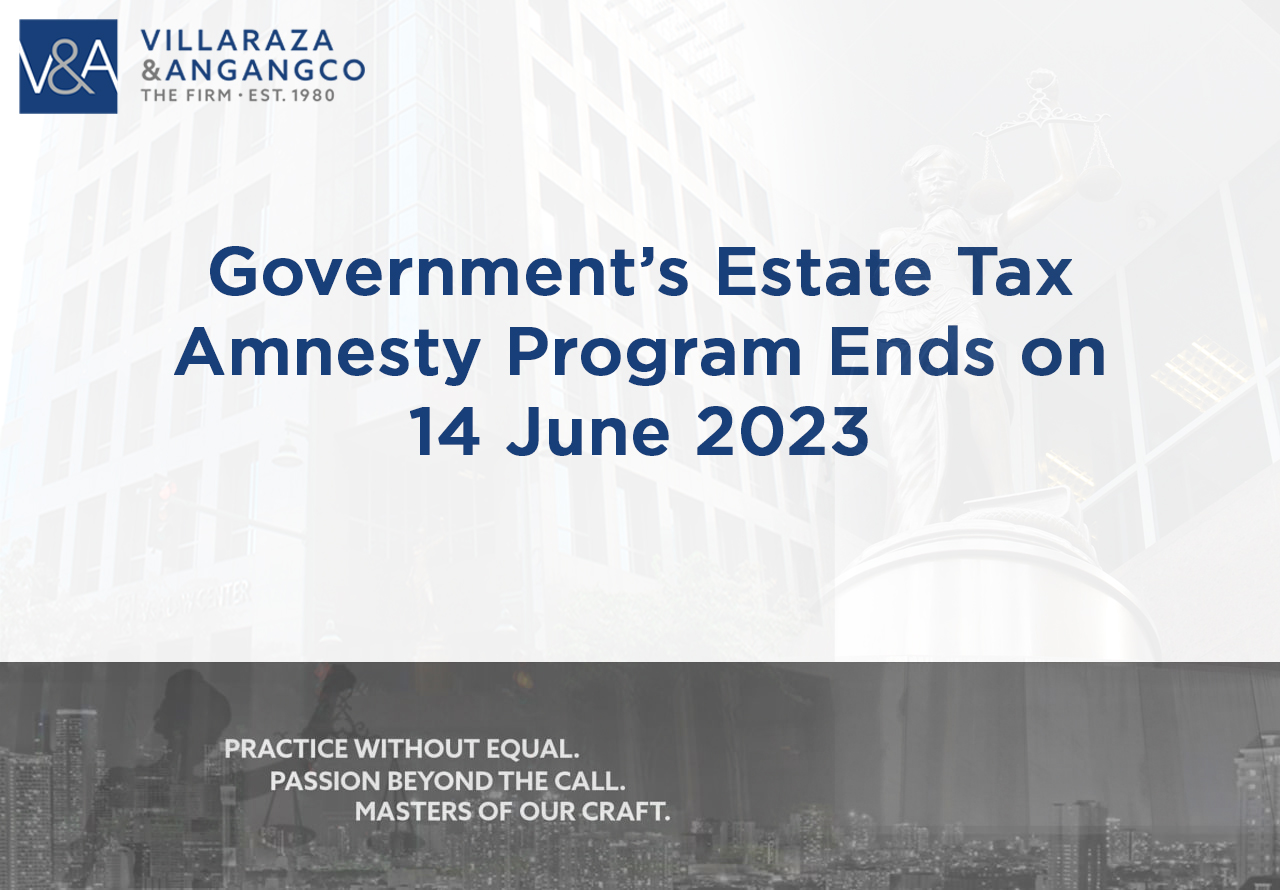

On 14 February 2019, then-President Rodrigo Duterte signed Republic Act No. 11213 (RA 11213) into law. The Tax Amnesty Act, as its short title states, aims to protect and enhance the revenue and administration of the State and make the country’s tax system more equitable. It provided for a one-time opportunity to settle estate tax obligations through an estate tax amnesty program with the dual goal of giving reasonable tax relief to estates with deficiency estate taxes and enhancing revenue collection by increasing the chance of collecting delinquent taxes on estates. Originally, this proverbial olive branch was only made available until 14 June 2021 but Congress passed Republic Act No. 11569 on 30 June 2021 extending the validity of the estate tax amnesty program for another two years.
What is covered by the Estate Tax Amnesty?
Under Sec. 4 of RA 11213, the Estate Tax Amnesty covers the estate of the decedents who died on or before 31 December 2017 whose estate taxes have remained unpaid or have accrued as of the aforementioned date. However, the benefits granted under the said law does not extend to the following cases:
What are the benefits of availing of the Estate Tax Amnesty?
Under Section 5 of RA 11213, the estate-taxpayer is entitled to an estate amnesty tax rate of six percent (6%) based on the decedent’s total net estate at the time of death. Estates which avail of the Estate Tax Amnesty also enjoy immunity from the payment of all estate taxes, including any increments and additions arising from the failure to pay any and all estate taxes for taxable year 2017 and prior years. The availing estate-taxpayers also enjoy immunity against all civil, criminal, and administrative cases and penalties under the Tax Code. It is worthy to note that prior to the TRAIN amendments on the Tax Code, estates were subjected to a schedular rate ranging from 5% (1998-2017) to as high as 60% (1973-1992). These rates have yet to consider the imposition of deficiency interest, delinquency interest, and surcharges from the non-payment of the decedent’s estate tax. Thus, qualified estate-taxpayers would definitely incur tax savings if the Estate Tax Amnesty were availed.
How can the Estate Tax Amnesty be availed?
Revenue Regulations No. 17-2021 provides guidance on how to avail of the Estate Tax Amnesty. First, an Estate Tax Amnesty Return (ETAR/BIR Form No. 2118-EA) shall be filed by the executor, administrator, legal heirs, transferees, or beneficiaries not later than 14 June 2023 with the Revenue District Office (RDO) having jurisdiction over the last residence of the decedent. The ETAR also provides for a list of required documents that must be presented together with the ETAR, one of which is an Acceptance Payment Form (APF-BIR Form No. 0621-EA).
Within five (5) working days from the receipt of documents, the concerned RDO shall either endorse the APF for payment of estate amnesty tax or notify the taxpayer of any deficiency in the application. Only the duly endorsed APF shall be presented to and received by the Authorized Agent Banks or the Revenue Collection Officers. After payment, the duly accomplished and sworn ETAR and APF with proof of payment, together with the complete documentary requirements, must be submitted to the RDO in triplicate copies.